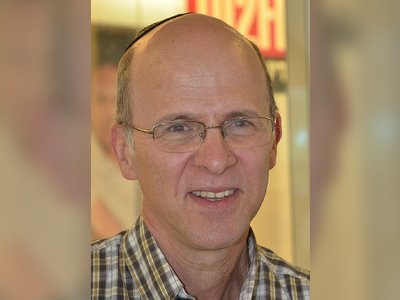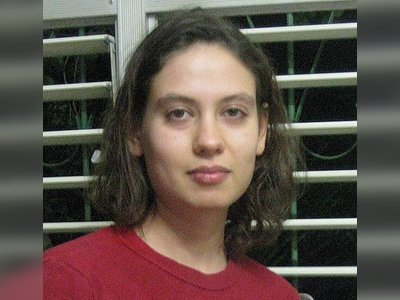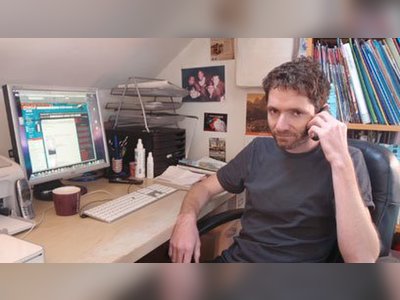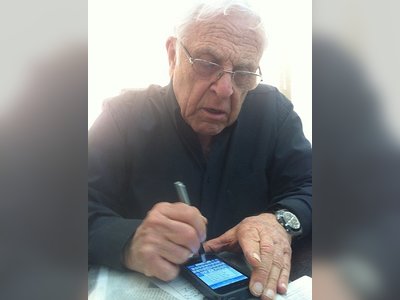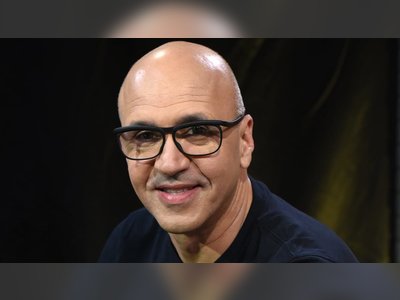Alexander (Alex) Libak
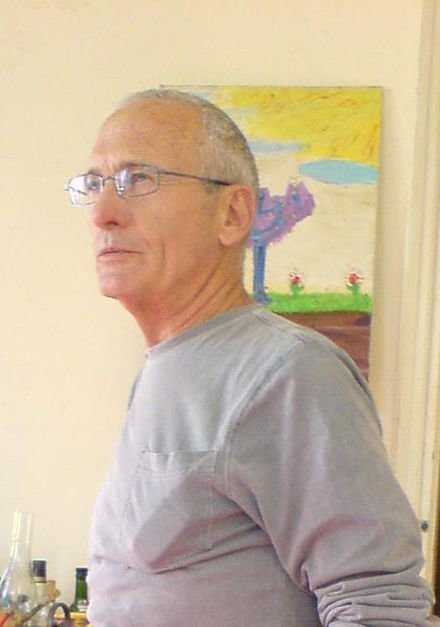
Alexander (Alex) Libak, born on June 23, 1944, is an Israeli photographer who documents Israeli society through candid, unposed photography. Throughout the 1980s and 1990s, Libak's photographs were featured in regular columns in newspapers such as "Chadashot" and "Haaretz," contributing to the establishment of photography as a form of public journalism. In 2005, he was awarded the Israel Prize in photography, recognizing his creative contributions to the field. His photographs continue to be published in "Haaretz."
Biography
Alex Libak was born in Tel Aviv in 1944. His father, Moshe Libak, immigrated to Israel in 1922 and established a textile business. Alex attended the Tel Nordau School and later the Municipal High School. At the age of 15 or 16, he received his first camera, a Brownie, as a gift from his father, who was an amateur photographer. His father used to photograph British soldiers and develop the photos in a darkroom in his souvenir shop at the Kastina junction.
In 1967, Libak completed his studies in psychology and philosophy at Tel Aviv University. After graduating, he embarked on a nine-month journey to Brazil aboard the ship "Theodor Herzl."
In Brazil, he accompanied anthropologist Antonio Suarez and began documenting the local residents and their surroundings as an amateur photographer. After nine months, he moved to London, where he attended a photography school and worked as a photographer for the BBC, with the guidance of one of his teachers. In 1971, he returned to Brazil.
During the 1970s, Libak traveled between Rio de Janeiro, London, Paris, and Los Angeles. In England, he exhibited a series of photographs depicting daily life in the town of Wolverton. In London, he documented the British punk rock movement and the "Skinheads" phenomenon at football matches. In Hollywood, he worked as a stills photographer on films.
At the University of Berkeley, he presented an exhibition on the lives of the indigenous people in the Amazon. In San Francisco, at the Zuny Gallery, he exhibited street photographs from Brazil.
Libak returned to Israel during the Yom Kippur War but was not drafted into the military. In 1981, Libak and his wife, a Palestinian artist, moved to Ashkelon to document the neighborhood revitalization project.
He used the processing services of a wedding photography studio in exchange for photographing two weddings per week. In the same year, he began working with journalist Rino Tzror at the "Anashim" newspaper, and together they later joined "Chadashot."
In April 1984, Libak captured the photograph known as "Line 300," which was published in the "Chadashot" newspaper. It depicted two Shin Bet agents leading one of the detainees from Line 300 while he was still alive. The photograph stirred controversy and became associated with the Line 300 affair.
When "Chadashot" closed in 1993, Libak moved to "Haaretz" and became a permanent contributor. At "Haaretz," he published the photography sections "Haaretz Shelanu" and "The 21st Century." In addition, in 2005, he photographed a series for "Haaretz" documenting poverty in Israel.
In 2003, Libak received the Ministry of Education and Culture Photography Award. In 1993, he was awarded the Rita Poratzi Prize for photography by the Tel Aviv Museum of Art. In 2013, he received the Israel Museum Award for his life's work.
In 2010, Libak was laid off from "Haaretz," two years before his retirement, but continued to work for the newspaper.
He has published five photography books: "Eyn LeTzion" edited by David Tartakover, "Saranda Tel Avivit" (poems by Eltaheramann with photographs by Libak), "Haaretz Shelanu," "Kmo Kelev" published by "Keter" (all dog photographs), and "Israel: The Twenty-First Century."
Libak teaches at a social-economic college and offers courses in street photography and documentary photography along with Felix Lupa.
Libak is a member of the Meretz political party. In the 2013 Knesset elections, he was placed 100th on the Meretz list, in the 2020 elections he was placed 101st, and in the 2021 elections, he was placed 97th.
Libak was the partner of Shari Ansky, with whom he had a son named Chaim. They separated in March 2014.
In 2014, a rare photography exhibition was presented, featuring Alex's documentation of the lives and natural surroundings of children suffering from cancer, in collaboration with the "Chaim" association.
On December 22, 2014, Libak was detained for several hours, along with journalist Gideon Levy, on suspicion of violating a military order (entering a village in Area A) and insulting a soldier.
Legal Case
Libak was at the center of a legal debate that involved a collision between artistic freedom and invasion of privacy. In 2002, Libak was sued by an ultra-Orthodox man who was photographed by him in a public place against the backdrop of a provocative advertisement featuring a scantily clad girl. The man had threatened Libak not to publish the photograph, but Libak argued that the photograph was for private use and would not be published.
However, the photo was eventually published in Libak's column "Haaretz Shelanu" in the "Haaretz" newspaper. The individual sued Libak for invasion of privacy and emotional distress. The Tel Aviv Small Claims Court found Libak guilty of invading the man's privacy because, according to the circumstances, the plaintiff was in the public eye to defame or humiliate him in the eyes of society. The court imposed compensation of NIS 20,000 on Libak.
Libak and "Haaretz" appealed the verdict, claiming that it undermined the essence of journalistic photography because it would now require photojournalists to obtain consent from anyone photographed. In 2006, the Tel Aviv District Court accepted their appeal and annulled the compensation.
In its ruling, the judge wrote that the plaintiff was aware of the nature of the location and chose to be there freely. Therefore, he had to consider the consequences of his actions. The plaintiff appealed to the Supreme Court, and in 2008, the Supreme Court judges overturned the Tel Aviv District Court's decision and reinstated the compensation.
The Supreme Court judges refrained from a fundamental discussion on the matter itself and based their decision on Libak's breach of his promise not to publish the photograph.
Israel Prize
Alex Libak was awarded the Israel Prize in Photography in 2005. In the judges' reasoning, it was stated: "There is no photographer like Alex Libak, who is so deeply rooted in the Israeli experience. He is known for his dedication, original and penetrating vision, sometimes ironic, of Israeli reality in its most hidden and marginalized aspects. Libak photographs with intellectual freedom, empathy, and a poetic observation of the fleeting moments that occur on the Israeli streets."
Even though Alex Libak is known for his anti-establishment viewpoints, he expressed excitement about receiving the award and said, "While this prize is given by the establishment, it's not the establishment that decides who receives it. The judges who sat on the panel are people I greatly respect."
- אלכס ליבקhe.wikipedia.org
